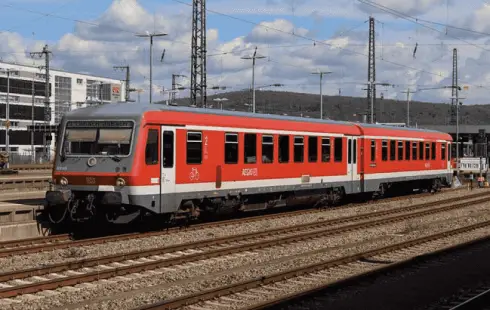
Crypto Investment Entry and Exit Strategies of Institutional Investors
Section: Business
 The German states are demanding that Federal Transport Minister Volker Wissing (FDP) quickly come up with a concept for a follow-up regulation to the 9-Euro-Ticket. "If Minister Wissing wants to have a successor ticket up and running as early as September, he should deliver now without delay," the chairwoman of the conference of transport ministers, Bremen's mobility senator Maike Schaefer (Greens), told the newspapers of the editorial network Germany on Saturday.
The German states are demanding that Federal Transport Minister Volker Wissing (FDP) quickly come up with a concept for a follow-up regulation to the 9-Euro-Ticket. "If Minister Wissing wants to have a successor ticket up and running as early as September, he should deliver now without delay," the chairwoman of the conference of transport ministers, Bremen's mobility senator Maike Schaefer (Greens), told the newspapers of the editorial network Germany on Saturday.
The federal states are basically prepared to "make a substantial contribution," Schaefer said of the financing of a possible new local transport ticket. "The basic prerequisite for such a decision, however, would be facts, which Federal Minister Wissing has so far failed to provide." There are many unanswered questions, he said: "How expensive would a successor ticket be? Would it apply nationwide? Specifically, how high should the state share be?"
The 9-euro ticket is valid throughout Germany on regional and local transport for one month at a time. It was introduced for June, July and August and is part of the government's relief package to compensate citizens for higher energy and fuel prices.
While Wissing praised the ticket as a success, he said most recently that the states would have to see "how they want to finance it." Federal Finance Minister Christian Lindner (FDP) strictly rejects further federal financing of the nine-euro ticket or a follow-up offer.
In the traffic light coalition, the Greens in particular are pushing for a follow-up regulation. Leading Green politicians are proposing a regional ticket for 29 euros and a nationwide ticket for 49 euros a month. Both should continue to apply only to local and regional transportation. This emerges from a concept paper by party leader Ricarda Lang, parliamentary group leader Katharina Dröge and North Rhine-Westphalian Transport Minister Oliver Krischer. To finance this, the Greens want to curtail the company car privilege, which allows companies to deduct the cost of company cars from their taxes. Above all, CO2 emissions are to be taken into greater account.
Finance Minister Lindner opposes abolishing the flat-rate taxation of company cars in order to finance the successor ticket. "It is already left-wing polemic to call the flat-rate taxation of a company car a privilege, because it is above all a tax simplification," the FDP politician told the German Press Agency. In his view, the Greens' idea would force several million citizens to keep a logbook without generating any additional revenue for the state.
Studies have shown that flat-rate taxation does not result in a tax advantage, Lindner said. A tax subsidy for company vehicles, on the other hand, exists for electric cars, for example, he said. "In my view, however, this makes sense, because it means that climate-friendly new vehicles are added to the fleet as company cars, which a short time later are good and inexpensive used cars," Lindner said.
Image by Jonas from Pixabay

Section: Business

Section: Arts

Section: Arts

Section: Business

Section: Business

Section: Arts

Section: Health

Section: Arts

Section: News

Section: News
Health Insurance in Germany is compulsory and sometimes complicated, not to mention expensive. As an expat, you are required to navigate this landscape within weeks of arriving, so check our FAQ on PKV. For our guide on resources and access to agents who can give you a competitive quote, try our PKV Cost comparison tool.
Germany is famous for its medical expertise and extensive number of hospitals and clinics. See this comprehensive directory of hospitals and clinics across the country, complete with links to their websites, addresses, contact info, and specializations/services.
Join us for the 10th Summer Concert at the Heilig Geist Church, featuring the captivating sounds of two trumpets accompanied by a majestic organ. This concert will showcase works by renowned composers including J.S. Bach, A. Torelli, P. Franceschini, H. Purcell, and others.



No comments yet. Be the first to comment!